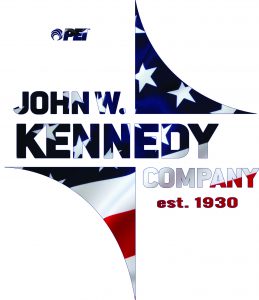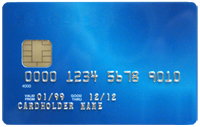End of an Era: Mastercard Phases Out Magstripe Cards + Implications for C-Stores
The end of swipe is upon us. Mastercard has announced it is phasing out the use of magstripe cards.
Yes, after six decades of swipes, that little magnetic stripe on the back of your bank cards is going away. The move has plenty of implications for convenience stores that have not upgraded to outdoor EMV.
Starting in 2024, Mastercard will no longer require its credit and debit cards to have a stripe in most markets. By 2027, U.S. banks will no longer be required to issue chip cards with a magnetic stripe. Mastercard expects to eliminate magstripes by 2033.
Before we discuss what this means for c-stores, let’s remember how we got here.
Back to the Future
The magstripe was invented in the 1960’s to replace flatbed imprinting machines (aka knuckle-busters), which cashiers used to record credit card information.
So how were stores able to instantly verify a customer’s account? They couldn’t. Instead, card companies would send merchants a list of bad account numbers and the merchant had to match their own lists to verify purchases.
Fast-forward to today, EMV chips are used for 86% of face-to-face card transactions globally. Only 11% of consumers still prefer the magstripe, according to a December 2020 survey paid for by Mastercard.
That negative consumer sentiment is directly related to the lack of security measures surrounding magstripes. Criminals have proven they can easily steal consumers’ cardholder data using malware and skimmers to embed that stolen data onto counterfeit magstripe cards. On the other hand, cards with EMV chips are encrypted and cannot be so easily stolen.
What Does it Mean for C-Stores?
For convenience stores that have already upgraded their fuel dispensers with outdoor EMV technology, it’s business as usual.
For retailers who still haven’t invested in modern payment technology as mandated by EMV regulations, business is about to become even more complicated. Mastercard was the first to take this position on magstripes; but the other major card brands are very likely to follow suite with their own plans to phase out magnetic stripes from credit cards.
If retailers with old equipment don’t upgrade soon, their customers could be forced to use cash to pay for gas inside the c-store. As most fuel business owners know, the lion-share of customers pay at the pump. Less than a third of consumers still use cash at all. Taking the pay-at-the-pump option off the table is a near-automatic business killer.
The end of magstripe cards isn’t the only problem non-compliant retailers face. Many major oil companies are now charging non-compliance fees for any station without EMV-ready forecourts. Some are even pulling the payment terminals out of the pumps altogether to avoid fraud.
The Bottom Line

These complications are nothing compared to the constant and immediate threat of chargebacks as a result of fraud migration. As more retailers turn on EMV at the pump, criminals are seeking out easier targets that have not been upgraded.
While there are some tactics retailers can use in an attempt to mitigate fraud, none of them are as effective or foolproof as the mandated EMV upgrade.
Ready to start protecting your business and customers from fraud with EMV-compliant payment technology?
Please feel free to contact us at 1-800-451-4021 or Email Us with any further questions or inquiries.
Looking for Gilbarco equipment? Click on the links below to visit our web store :
Pumps & Dispensers |
Passport Point of Sale |
Forecourt Payment Options |
Forecourt Merchandising |
Click here to search all Gilbarco equipment and parts listed in our web store.
The John W. Kennedy Company appreciates your business and continued support!








 With all merchants who accept credit cards facing the impending shift to the EMV standards, our partners at
With all merchants who accept credit cards facing the impending shift to the EMV standards, our partners at 


